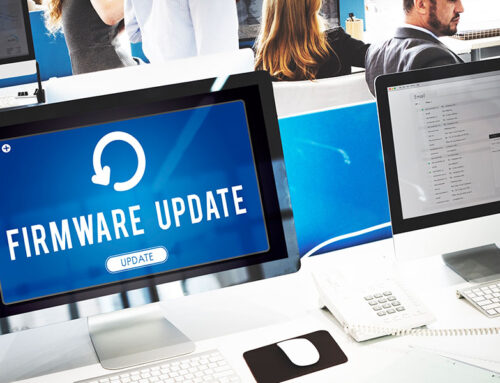 Phishing attacks are targeted attacks performed by malicious actors to trick users into giving up personal information such as credit card details, passwords for social media accounts, user inboxes, online accounts and bank accounts. There are many different types of phishing scams, with some asking a user to click on a link or enter log-in credentials and others using fake websites or installing malware to trick users and steal sensitive information.
Phishing attacks are targeted attacks performed by malicious actors to trick users into giving up personal information such as credit card details, passwords for social media accounts, user inboxes, online accounts and bank accounts. There are many different types of phishing scams, with some asking a user to click on a link or enter log-in credentials and others using fake websites or installing malware to trick users and steal sensitive information.
Read on to find out more about how phishing attempts work and how to prevent data breaches and protect your business.
Types of Phishing Attacks
Let’s take a look at some of the most common phishing scam tactics deployed by malicious actors and identity thieves.
Spear Phishing Attacks
As the most common phishing scam, spear phishing is a potential threat to most businesses. These phishing emails trick the receiver into thinking the phishing email was sent by someone known within an organization.
Spear phishing attacks such as a business email compromise can bypass internet security because they don’t usually contain attachments or links. For example, a malicious actor might pose as an employee and send a request for a change of bank details as if the request comes directly from a worker.
Email Spoofing Phishing Scams
Email phishing attacks are very common, and spoofing specifically refers to phishing emails where the email address is forged to appear familiar. If you’re using a web-based client, it’s usually easier to see the difference between a real and a phishing email address. However, when it comes to mobile devices, email addresses are usually shortened, which makes a phishing attack like a business email compromise more likely.
Credential Phishing Attacks
With credential phishing attacks, malicious actors gain entry to sensitive data held on cloud-hosted apps such as DocuScan, LinkedIn and OneDrive. These phishing scams contain malicious links that ask users to enter log-in details and personal information so the cybercriminal can gain access to sensitive information.
Search Engine Phishing Attacks
Some of the most recent phishing attacks to gain popularity among malicious actors are social media phishing campaigns. Identity thieves create fake phishing sites that offer special deals and bargains and index them on social media sites. They lure visitors to enter bank account details and log-in credentials in exchange for fake products, with job offers and discount codes serving as popular dummy sites.
Pharming Phishing Techniques
Domain spoofing or cloned phishing attacks are created by malicious actors using malicious code to redirect users from legitimate sites to phishing sites. This type of phishing scam tends to use actual emails sent from the site and swap out genuine links for malicious links.
How to Defend Against Phishing Attacks: Six Steps
 A phishing attack can be hugely detrimental to your business, and the smaller you are, the more at risk you potentially are. Vulnerability to common phishing scams depends on an array of factors, but most phishing attacks are preventable.
A phishing attack can be hugely detrimental to your business, and the smaller you are, the more at risk you potentially are. Vulnerability to common phishing scams depends on an array of factors, but most phishing attacks are preventable.
Security awareness training for employees and robust infrastructure are two of the most important factors when it comes to defending against phishing attacks. Below is a simple description of the measures you can take to protect personal information, user inboxes, log-in credentials and company credit card details.
1. Employee Training
Most phishing attacks require a person to click on a link or enter log-in details on fake websites or phishing emails. One of the best ways to defend against phishing attacks is by training employees to spot red flags such as grammatical errors, scare tactics and suspicious-looking phishing email attachments and making sure they always check for the HTTPS and SSL certificate.
2. Password Policies
Phishing attacks tend to rely on human error, and one of the greatest mistakes you can make when it comes to preventing phishing campaigns is not regularly updating passwords. Protect your company against phishing scammers and malicious actors by ensuring passwords are strong, are long and use two-factor authentication.
3. Encryption
Another smart way to minimize the chances of phishing attacks is by encrypting all your company’s sensitive data. Encryption is a method of using algorithms to scramble sensitive data and prevent certain types of data breaches.
4. Secure Browsers
The browsers your employees use are more important than you might have realized with regard to preventing phishing attacks. Cookies, credentials and personal information are at stake, so be careful about the data your browser stores and only use reputable clients with a great reputation for security.
5. Software Updates
Another simple way to prevent phishing attacks is by ensuring that you regularly perform software updates to keep your system’s internet security up to date. Outdated software is one of the biggest security risks and a key component of security awareness training. It’s not just Windows updates, antivirus updates and anti-spam software updates but pretty much every item of software and hardware your company uses.
6. Hire a Phishing Attack Expert
There are plenty more ways to defend against phishing attacks, but the above are the simplest ones that most people can implement. If you don’t have an IT department but have an e-commerce website or any site that requires customers to enter their bank details or personal information, you’ll need a more robust set of defenses in place.
Tasks such as isolating key components of your business’s infrastructure and implementing a centralized network filtering solution provide enhanced protection against phishing attacks. A professional IT company can help you implement and maintain these critical protections against phishing attacks.
EIRE Systems Can Help You Prevent Phishing Attacks
If minimizing IT security incidents by preventing deceptive phishing attacks is a priority for your business, EIRE Systems can help. Our team of phishing attack experts understands how to help your business avoid phishing scams and keep your company’s, employees’ and clients’ personal information safe.
About the Author: EIRE Systems
EIRE Systems is a leading independent provider of professional IT, AV and Access Security services to the financial, insurance, manufacturing, health care, retail, construction, hospitality, commercial real estate, legal, educational and multinational sectors in Japan and throughout the Asia Pacific region. EIRE Systems has expertise across a wide spectrum of Information Technologies, with a track record for successfully completing hundreds of assignments since its establishment in 1996.



